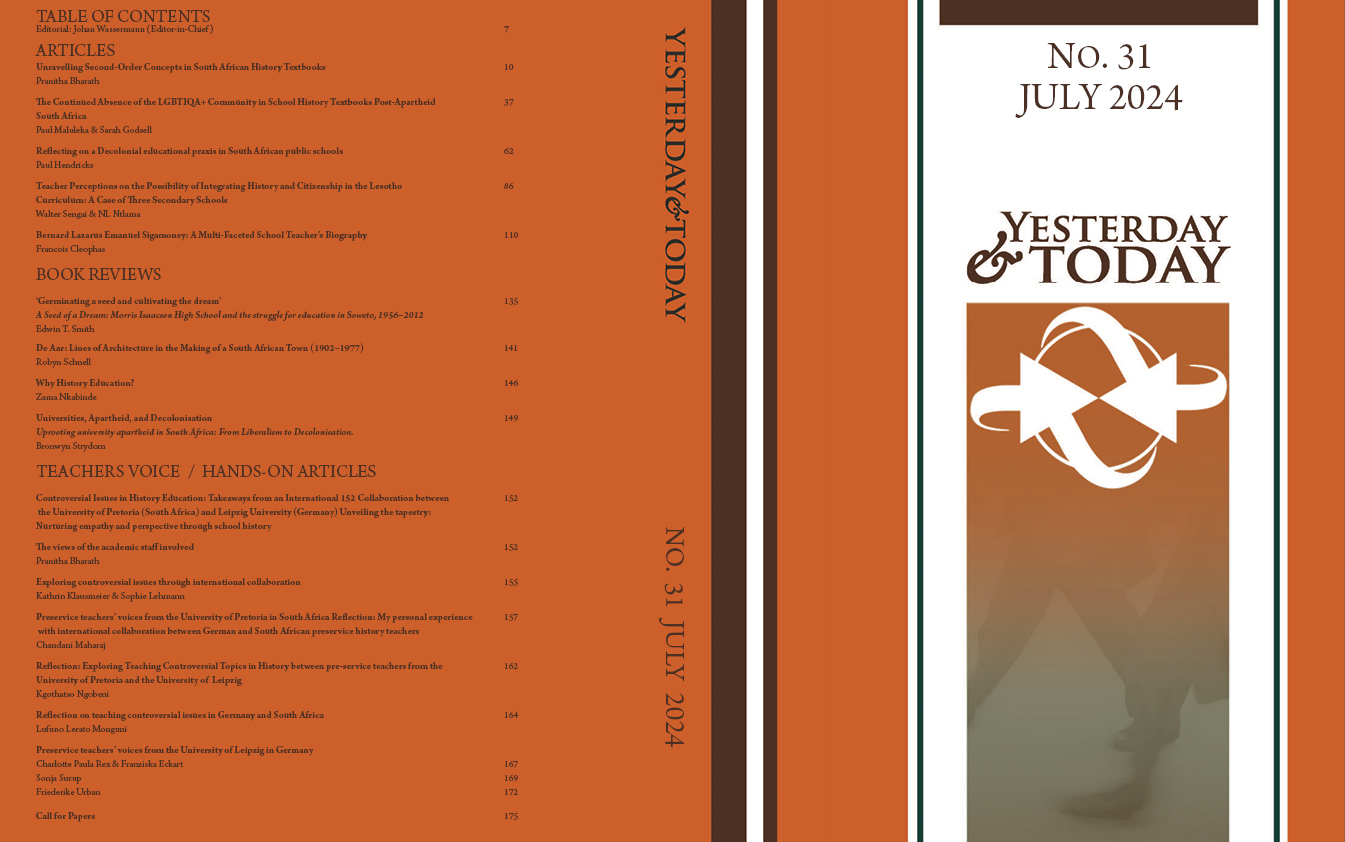Reflecting on a Decolonial educational praxis in South African public schools
DOI:
https://doi.org/10.17159/2223-0386/2024/n31a4Keywords:
Alternative education, Critical pedagogy, Decolonial education, Teacher politicsAbstract
The continuing educational crises and the recurrent discourse on educational reform in South Africa foreground critical questions on what constitutes a viable philosophical and pedagogical strategy for the country. This article examines the transformative praxis of a dissident teachers’ organisation, the Teachers’ League of South Africa (TLSA or the League), and how the development of its distinctive non-racist and non-collaborationist worldview provide meaningful possibilities for present-day educationists seeking a progressive educational alternative. The article draws on decolonial and critical education theories to engage the views of TLSA teachers and non-League education activists. Documentary material on the TLSA and its umbrella body, the Unity Movement, provide key primary sources for the article. In addition, secondary information linked to the broader liberation movement offers valuable insights and perspectives on what could be defined as an alternative educational praxis. Overall, the article examines whether the coexistence of the TLSA’s holistic educational outlook and ‘egalitarian oriented’ counter-consciousness, offers tangible possibilities for exploring an emancipatory decolonial education.


